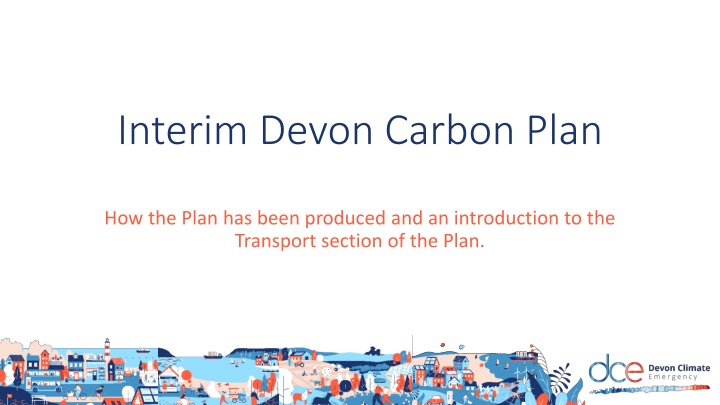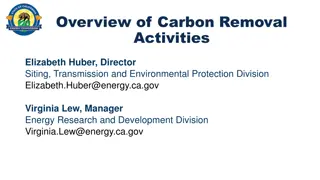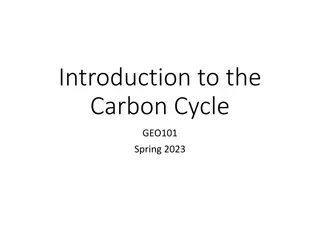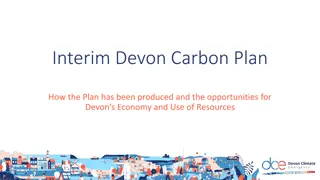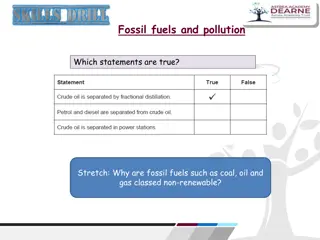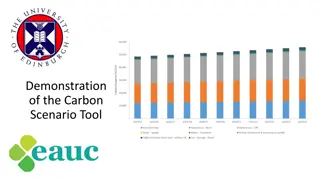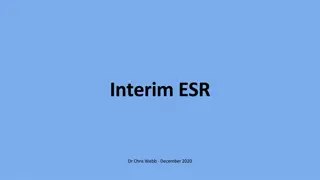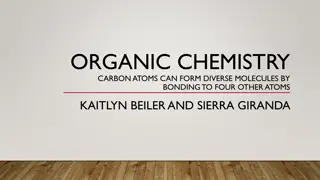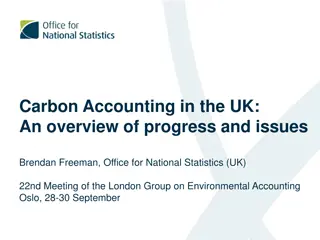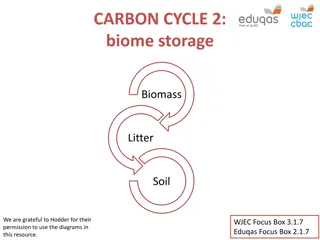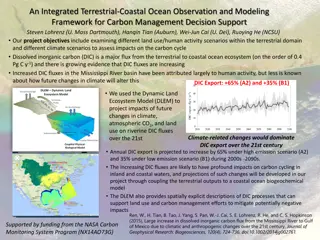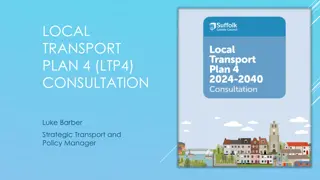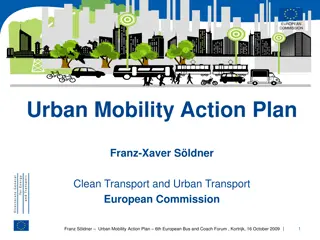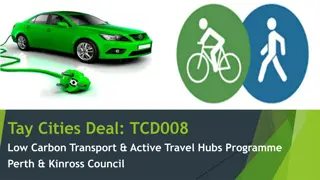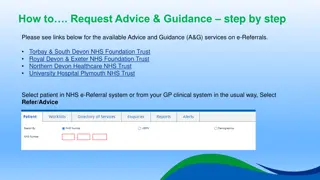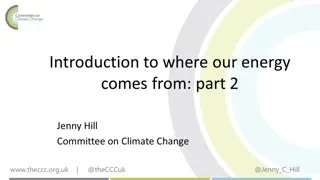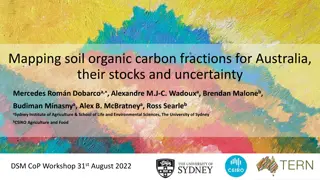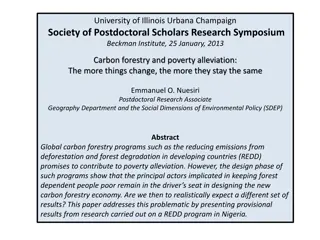Overview of Interim Devon Carbon Plan and Transport Section Introduction
The Interim Devon Carbon Plan outlines the path to achieving net-zero carbon emissions by 2050, focusing on strategic issues and community engagement. The plan highlights the need for additional resources and policies, with a special emphasis on the transport sector. Funding, geography, and practical challenges are discussed to address the transition to a sustainable future for Devon.
Download Presentation

Please find below an Image/Link to download the presentation.
The content on the website is provided AS IS for your information and personal use only. It may not be sold, licensed, or shared on other websites without obtaining consent from the author.If you encounter any issues during the download, it is possible that the publisher has removed the file from their server.
You are allowed to download the files provided on this website for personal or commercial use, subject to the condition that they are used lawfully. All files are the property of their respective owners.
The content on the website is provided AS IS for your information and personal use only. It may not be sold, licensed, or shared on other websites without obtaining consent from the author.
E N D
Presentation Transcript
Interim Devon Carbon Plan How the Plan has been produced and an introduction to the Transport section of the Plan.
1. Welcome Your Host Nik Bowyer Member of the Net-Zero Task Force, Chair of the Chartered Institution of Highways and Transportation South West Region and an Associate Director at AECOM Speakers: Mark Hodgson Founder and Managing Director of Co-Cars and Co-Bikes Megan Streb Sustrans Emily Reed Devon Climate Emergency Project Manager Hannah Oliver Devon Climate Emergency Communications Lead
Agenda 1. Welcome 2. Background to the Devon Climate Emergency 3. Introduction to the Interim Devon Carbon Plan 4. What needs to happen? 5. Keynote discussion 6. Question and Answer Session 7. Next Steps
2. The Devon Climate Emergency Creating a resilient net-zero carbon Devon where people and nature thrive Objectives: Partnership: Reduce carbon emissions to net-zero by 2050 at the latest Improve the resilience of Devon s environment Prepare communities for a warmer world
2. Devon Climate Emergency Project Structure: Devon Climate Declaration
3. The Interim Devon Carbon Plan Engagement A plan for everyone one in Devon Focuses on the strategic issues and it nests with plans at other levels
3. The Interim Devon Carbon Plan Date for Net-Zero Your Opinion The Plan describes what needs to be done to reach net-zero Provides a trajectory to meet net-zero by 2050 Indicates the costs, opportunities and co-benefits of 2050 Discusses the practical challenges of achieving net-zero ahead of the national timetable e.g. 2030 and 2040 Specific consultation question
3. The Interim Devon Carbon Plan Funding: Geography: The Plan makes clear that net-zero cannot be achieved within existing resources and policy. The current funding status of each action is described. Most need new resources. Significant opportunities for individuals to redirect purchasing power e.g. e-bikes. Devon s rural nature is a challenge and an opportunity. Some net-zero actions and behaviours will be easier in town and cities. Where actions apply to a specific type of area, this is described.
3. The Interim Devon Carbon Plan Co-Benefits of Net-Zero: Create a fairer, healthier, more resilient and more prosperous society Health and Wellbeing Warmer homes, more active lifestyles and healthier diets Prosperity New jobs and skills and retaining spending locally Environment Enhance and regenerate nature, reduce flood risk, improve water and air quality
4. What needs to happen? Transport: Accounts for 31% of Devon s greenhouse gas (GHG) emissions The single largest emitter of GHG across the County, and UK-wide The movement of people accounts for around two thirds of all transport emissions
4. What needs to happen? What needs to happen? Reduce the need to travel Shift to sustainable transport options Active Shared transit Taxi Electrification or sustainable fuels for the remainder of vehicles
4. What needs to happen? Key outcomes: Relocalisation of services and technology and to reduce the need to travel Access to village, town and city centres is enhanced for pedestrians, cyclists and public transport A great proportion of people travelling by sustainable modes of transport Ultra-low emission vehicles are used for where active travel is not possible and public transport is not viable
4. What needs to happen? Reduce the need to travel: Provide up-to-date information and advice Promote development which will assist in relocalisation Promote active transport and shared mobility: Improve strategic cycle routes Make changing transport type easy
4. What needs to happen? Influence the switch to public transport: Make bus travel relatively more attractive Protect and seek to enhance local bus routes Pilot low carbon fuel for rail travel Transition the remainder of vehicle fleet away from fossil fuels: Develop an electric vehicle strategy Fleets: Ultra Low Emission Vehicles, including shared cycles and e- cargo bikes Public transport fleets
4. What needs to happen? Key co-benefits: All benefit from the relocalisation of facilities and services, including the local economy, particularly small businesses We are all feeling fitter and healthier from being more active outdoors Wider environmental benefits, including reduced pollution and improved biodiversity
Your Opinion Poll
7. Next Steps View the plan: devonclimateemergency.org.uk/interimcarbonplan Complete the consultation online Share the consultation - tell a friend, family or colleague Attend some of the thematic webinars
devonclimateemergency.org.uk/interim-devon-carbon-plan-webinar-seriesdevonclimateemergency.org.uk/interim-devon-carbon-plan-webinar-series
